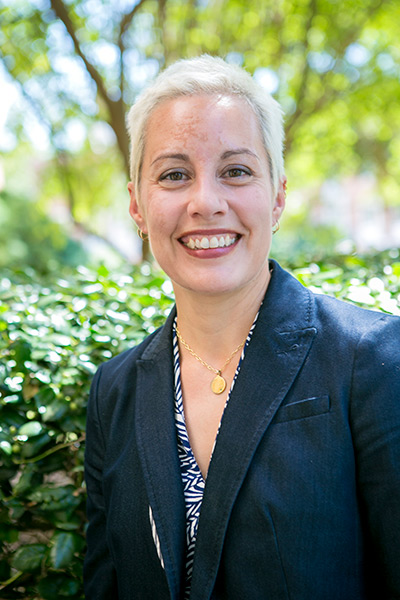
Position: Assistant Professor of Classics
Teaching at Samford since: 2002
In addition to being a member of the faculty, Dr. Flynt is a 1991 Samford graduate.
Why do you teach? I think I teach because I love to learn, always have. I haven't ever found any subject dull; I love to read; and I love to know more. I think my enthusiasm to share all this fascinating information about the world is my strongest motivator.
What is one thing you want your students to know when they graduate from Samford? This is really something they should keep in mind before they ever graduate, but a student really should try to figure out what she wants to do, individually and even uniquely, and then work her hardest to make that idea a reality. It seems that students make choices sometimes based on what their parents want, or what may work with the career and life goals of a current or future partner, or what society says matters at the moment. But, I wish they would envision their own lives, just themselves, and stay true to that vision.
How did your background prepare you for your current role at Samford? I teach in three different divisions at Samford and three (or more) different disciplines. My liberal arts education that not only exposed me to, but really immersed me in all of the liberal arts makes this possible. I continued that course of broad studies in graduate school, and so I feel comfortable and competent--and I enjoy--teaching about everything from Homer to Contemporary Art. I can't help but make connections among all of these interests and experiences. They all work together to create a more dynamic and varied, but interconnected view of the world. I see in all of it this wonderful, long history of human activity and development, and a kinship through the ages.
You were a Fulbright scholar and now you oversee the Fulbright process for Samford. Why is this program important for a university like Samford? I don't know if the reason I value Fulbright so much is specific to Samford. For me, Fulbright was life-changing and life-affirming. I never could have done what I did in my academic career without that Fulbright grant and Fulbright year, not just the financial support but the connections and opportunities it provided were essential. It was also affirming to know that my own interests and studies were deemed worthy and valuable enough to support, by a prestigious and international organization like Fulbright. And, I think the Samford students who win grants then get the same experience that I did.
What is your most poignant moment as a Samford faculty member? The first thing that comes to mind is not completely a happy collection of memories. The most poignant moments or events have been the loss of faculty colleagues like Ron Jenkins and David Foreman. When we have gathered to remember them and heard from so many people - especially their students - about what mentors and educators they were, I have always felt uplifted and inspired to do a better job and to try to live up to the examples they set.
